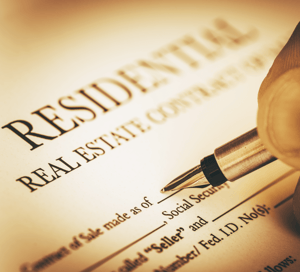In our previous installments of Income Property 101, we outlined the pros and cons of becoming a landlord as well as the steps you need to take to become a landlord. In this next segment, we explore Alberta’s laws regarding renting residential property and discuss a landlord’s rights and responsibilities extending from this legislation.
Abiding By the Law
In Alberta, the rights and responsibilities of both the landlord and the tenant are covered by the Residential Tenancies Act. This is where a vast majority of laws surrounding tenant/landlord interactions are outlined; everything from security deposits, inspection reports and what each party can do should something go wrong, to name just a few.
However, there are other laws in place that will also spell out responsibilities for landlords. These include the Minimum Housing and Health Standards, the Human Rights Act, building codes and municipal bylaws. If you decide to rent out a property, be sure to make sure you have a working knowledge of these pieces of supporting legislation.
A Landlord’s Rights
Access to the Rental Property
While landlords have to provide notice of entry to the rental property of their tenant, you do have a right to accessibility at all times. This means you have the right to not allow tenants to change the external locks to the home, and should they be changed, your tenant must provide you with keys immediately.
Sublease Approvals
A tenant cannot sublease your property to another tenant without your expressed written consent. You can refuse permission to your tenant, but only if you have reasonable grounds to do so. You must document these possible reasons in writing to your tenant within 14 days.
Evictions or Removals
While you cannot arbitrarily evict your tenant on your own, legislation in place allows you apply a request for eviction to the Residential Tenancy Dispute Resolutions Service (RTDRS). You may also apply to the RTDRS to recover damages or if there is a physical altercation between you and your tenant.

A Landlord’s Responsibilities
Provide a Signed Lease
Once you have a signed rental agreement, you must ensure you provide a copy of the agreement within 21 days of it being signed.
Allowing Tenants Privacy
While you own the property, this doesn’t mean you have access to the home whenever you’d like. In renting the property, for all practical purposes it becomes the property of your tenant. This is because you cannot access the home or property without the tenant’s consent. When you do, it must be for a specific reason such as a repair, and you must give the tenant a notice of 24 hours that you will be accessing the property.
For this reason, you won’t be able to use your rental property for storage as long as it's being rented. Consider this before you decide to rent out your property to someone else.
Providing the Necessities
In order to rent out your income property to a tenant, your home, rental suite or condo must meet Minimum Housing and Health Standards mentioned previously. This means it’s safe to live in, structurally sound, and protects the tenant from the outside elements, such as rain, wind, and snow. The standards also pertain to minor elements, such as lighting and smoke alarms, so be sure that your rental property meets these as well.
Provide Your Contact Information
Depending on the details of the signed lease agreement, there will be reasons your tenant will need to contact you. Whether it's due to an emergency, such as a fire, frozen pipes or a break-in, or something that you’ve agreed to fix, your tenant will need to get a hold of you.
This also helps in creating a mutually beneficial relationship between you and your tenant, one where two-way communication is encouraged. You don’t need to become best friends, but having a good relationship can go a long way to ensuring issues are dealt with quickly.
Rent Increase Notices
While Alberta has fewer rent controls than other provinces, this doesn’t mean you have free reign to charge whatever you want, whenever you want. Landlords must provide their tenants with three months’ notice before increasing the rent on their property. This will provide enough time for your tenant to either adjust their budget to accommodate the increase or to find suitable housing elsewhere.
It is also important to note that, while there is no limit to which landlords can increase rental rates, increases are limited to once a year for a single property.
Interest on Security Deposits
Once your tenant has provided their security deposit, you must place those funds in an interest-bearing account with a financial institution within two business days. You and your tenant can agree upon whether to pay out the interest on an annual basis or when the tenant moves out.
If you decide that you’d like to rent out a residential property you own, it’s extremely important to have a thorough understanding of your rights and responsibilities, as well as those of your tenant. It will ensure a stress-free relationship with your tenant at best, and at worst, an understanding of what you can do should any issues arise.




